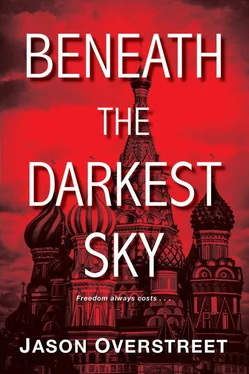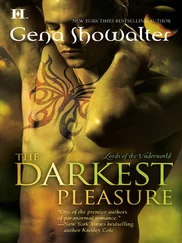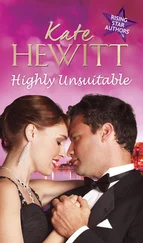“Why thank you so much, Ms. Arle-Titz!” I said. “These are our children, Ginger and James. And these are our close friends, Bobby and Dorene Ellington, along with their children, Grant and Greta.”
“Hello to you all!” she said, nodding her head to say hello. “Very nice to meet you! Listen, Mr. Ellington, you don’t mind if we borrow the Sweets for about a half hour or so, do you? We have a group in the bar waiting to meet them. We won’t keep them long. Promise!”
“Of course not,” said Bobby, tapping me on the shoulder. “Look, Press, why don’t you four go say hello and we’ll get us all checked in. Then you and I can take our little walk. Sound good?”
“Appreciate that, Bobby. See you in a bit.”
We followed Coretta through the lobby and into the restaurant bar. There had to be at least thirty colored men and women waiting for us. And as soon as we walked in they began to clap.
“Everyone!” said Coretta. “Our colony additions have arrived!”
We began shaking hand after hand as we walked through the group, many of them saying “welcome” and touching us on the shoulders. It was so warm and heartfelt, a lovely surprise to all four of us.
“Now listen!” said Coretta, handing Loretta and me some full glasses of wine from the bar and two glasses of soda to our children. “The Sweets are very tired, as I’m sure we can all imagine, having made that long-ass journey from the States ourselves, so they don’t have time to meet you all today. However, I’d like for some of you who have been living in the Soviet Union for a while to tell them what brought you here. Maybe your stories will enlighten them, show them how truly free we feel here, as opposed to America. I’ll start!”
“Go on now, girl!” shouted somebody, as if he’d been drinking for a while.
“Let us hear it, sista!” said another.
“I came before the Bolshevik Revolution,” said Coretta, looking at Loretta and me. “I graduated from both the Leningrad and Moscow conservatories of music. I’m married to a piano professor who is Russian. And no one so much as bats an eye. We’re free to be a mixed couple. And even when it comes to my wonderful husband, I make no bones about the fact that I was in a fabulous relationship with a czar before the revolution. Those were the good old days! Before they ran him out of town!”
“Hush!” said an imposing chocolate-skinned man who was sporting a big grin. “Lord knows who might be listenin’ around the corner over there, Coretta girl!”
“Since you’re the one hushin’ me, Wayland,” said Coretta, “why don’t you go on and tell ’em about you.” She jokingly fanned her face with her purse, as if she were hot. “Let me quit up in here! While I’m ahead, Loretta girl!”
She put out her hand for Loretta to grab and the two giggled.
“You forgot to tell ’em about how you got your start in Harlem,” said Wayland, “and about how you are the best damn singer in Moscow. Our Coretta is being way too humble. Girl can sing in four languages!”
“Thank you, darlin’ Wayland. Now go on and preach!”
“I ain’t nobody!” said Wayland. “But I suppose I’m still trying to be. My name’s Wayland Rudd. I came over in 1932 as part of the Negro group of twenty-two who’d been pegged to make a film about America’s race problem. The film was to be called Black and White .”
“I heard about that,” I said. “Much was written about the film project in all of the papers. Wow! You were a part of that, Mr. Rudd?”
“Yes, sir! But it never got to be made. President Roosevelt put pressure on the Kremlin to refrain from all propaganda against the U.S. Our race film qualified as just that, so Stalin axed it. He needed America’s machines and technology more than he wanted to expose America’s race problem. So, when all the other actors in the group headed home, including one Langston Hughes, I stayed here. I’m still trying to make it as a stage actor. But believe me, it is as hard here as it is on Broadway.”
“You’re not the only one from the group who stayed here,” said a handsome brother from across the room.
“Shame on me!” said Wayland. “How could I have failed to mention my brother over there. That’s Lloyd Patterson, y’all. He was with Langston and the group, too.”
Lloyd just smiled and humbly waived.
“That film would have been groundbreaking,” said Coretta. “We’ll have to tell you four more about it later. I’m sure you’re tired. We plan on having a much larger and lengthier gathering for you all soon. We just wanted to welcome you and let you know that you have plenty of family in this… damn near… other-planet-of-a-country. We all wish Emma Harris were here, too, to welcome you. She’s back in the States now. Moved back last year. She had lived here the longest, since 1905. An outstanding concert soloist!”
“We called her the Mammy of Moscow,” said Lloyd. “She would have cooked y’all a big Southern meal. She was from Kentucky. She cooked for every Negro in Moscow. Made us ham hocks, fried chicken, corn bread, hash, butter beans, cabbage! And she wasn’t ashamed of being part of the czarist times when she had butlers and a wealthy Russian companion.”
“Shoot!” said Wayland. “By no means was Mammy bashful about being a part of that czarist ilk. She would boast about that life right in front of these Stalinists, with their anti-bourgeois sentiments. And they left her alone, as they all admired her, too. She would straight up tell you, ‘I’m like a cat with nine lives, honey. I always lands on my feet… been doing it all my life wherever I been. These Bolsheviks ain’t gonna kill me.’ ”
“I remember,” said Lloyd, laughing, “when Mammy was talking about being frustrated with having to live in a rundown apartment because of the Bolsheviks. She said, ‘I would just love to be Stalin’s cook. I’d put enough poison in his first meal to kill a mule.’ ”
Everybody shouted with laughter, including Loretta and me. James and Ginger just smiled and sipped their drinks.
“But Mammy actually knew Stalin and he liked her,” said a man from the back. “I’m Oliver Golden, by the way. And since we’re doling out professions, I happen to be an agronomist.”
We waved at him and he continued.
“Mammy could get all kinds of food that no one else could find. She had her connections, probably from the peasants who still hadn’t had their land turned into collective farms. They still knew her from the czarist days when she would purchase from them. The collectivization system is one that might leave you newly arrived Sweets wondering why we still like the Soviet Union so much. Simple. They treat us Negroes with such respect. Period.”
“Go on now, Oliver,” said Coretta. “Tell it.”
Oliver cleared his throat. “I feel for the peasants, but still, it’s okay for us to be selfish here in Russia and only see things from our perspective after over three hundred years of American slavery and oppression. Yes? At least that’s what George here and I think. Say hello to our new kinfolk, Comrade George.”
“Hello, Sweet family! I’m George Tynes from Virginia.”
“Hello,” we said.
“I’m an agronomist, too, but don’t mind me. I’m not one to carry on about myself. I’m not so natural at it like my singing and acting comrades and sisters here. Just wanna say welcome! Oh, and I agree… I miss our Emma’s cooking, too! No one like her!”
“Nope!” said Coretta, shaking her head the way one does when they miss somebody. “It just ain’t the same here without our Emma, the Mammy of Moscow.”
* * *
After our meet and greet, Loretta and I headed upstairs and got the kids settled. Then Bobby and I began our stroll south toward the Red Square. All I could smell was a mixture of engine and cigar smoke. But I marveled at the colorful buildings along the area between our hotel and the Kremlin.
Читать дальше











